Vegan Nutrition: The Health Benefits of a Meat-Free Diet 🌱
Adopting a vegan nutrition diet isn’t just about helping animals or the environment—it also makes your body healthier. By not eating any animal products, you can fill your diet with plants that are full of nutrients. But how does a vegan diet make you healthier, and what can you expect?
1. Vegan Nutrition for Better Heart Health ❤️
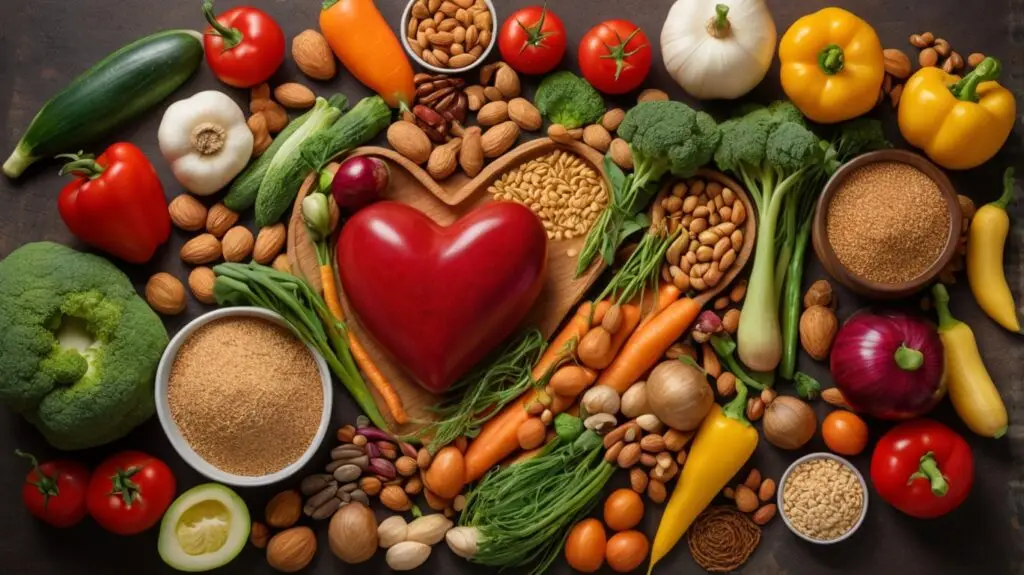
Want to keep your heart happy? A vegan nutrition diet can help! It cuts out meat, dairy, and other animal products that are high in unhealthy fats. This helps lower cholesterol and blood pressure. Did you know that people who eat plant-based diets have a 32% lower risk of heart disease compared to those who eat meat? By eating more whole grains, fruits, and veggies, you’re keeping your arteries clear and your blood pressure steady.
Foods like nuts, seeds, and beans are full of healthy fats, like omega-3s, which help reduce inflammation and keep your heart healthy. Adding these foods can also help lower the bad kind of cholesterol (LDL). Omega-3s are especially important because they help keep your blood vessels flexible, making it easier for your heart to pump blood. Including foods like flaxseeds and walnuts can make a big difference in your heart health.
Plus, eating lots of fruits and vegetables means you’re getting plenty of antioxidants. These antioxidants help protect your heart by fighting off free radicals, which are harmful substances that can damage your cells. So, eating a colorful variety of fruits and veggies is like giving your heart extra protection.
2. Vegan Nutrition Helps with Weight Loss and Staying Fit 🏋️♀️
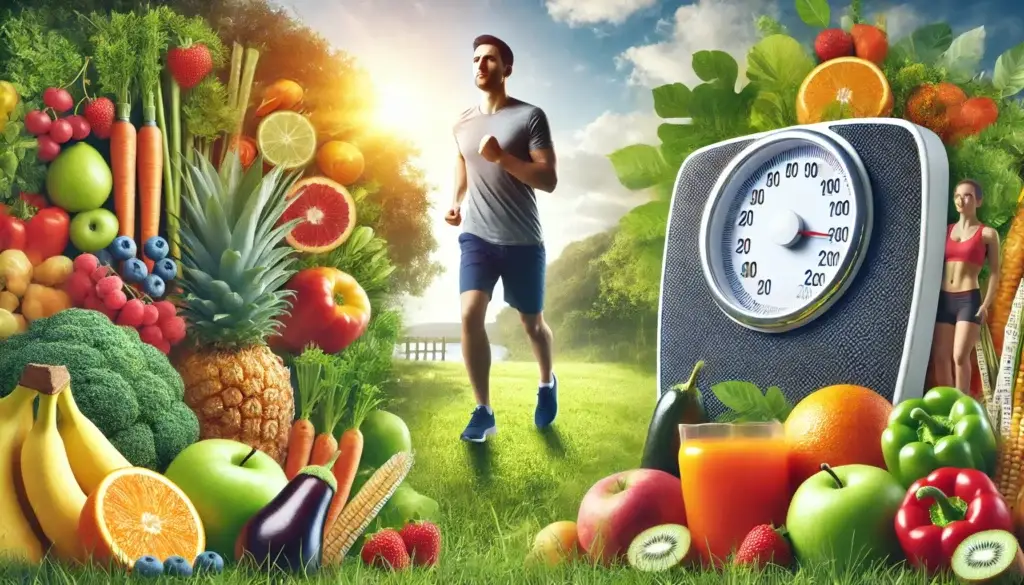
Do you want to lose weight or just stay in shape? A vegan diet can help with that! Vegan foods are often lower in calories and fat, which means you can lose weight without counting calories all the time. People who eat vegan tend to weigh less and have a lower body mass index (BMI) than those who eat meat. This is because plant-based foods are full of fiber, which keeps you feeling full and helps you eat less.
A study in the Journal of the American College of Nutrition even found that vegan diets are better for losing weight than other diets. High-fiber foods like fruits, veggies, beans, and whole grains make you feel full longer, so you’re less tempted to snack on unhealthy foods. Have you ever noticed how a big salad can make you feel full without feeling heavy? That’s the power of fiber at work.
Another great thing about a vegan diet is that it helps you avoid processed foods that are full of added sugars and unhealthy fats. By focusing on whole, plant-based foods, you can make healthier choices that support weight loss and keep your energy levels high. And don’t forget—eating fresh fruits and vegetables can be delicious! There are so many tasty options, from crunchy carrots to sweet berries, that make staying fit enjoyable.
3. Vegan Nutrition Reduces Cancer Risk 🎗️
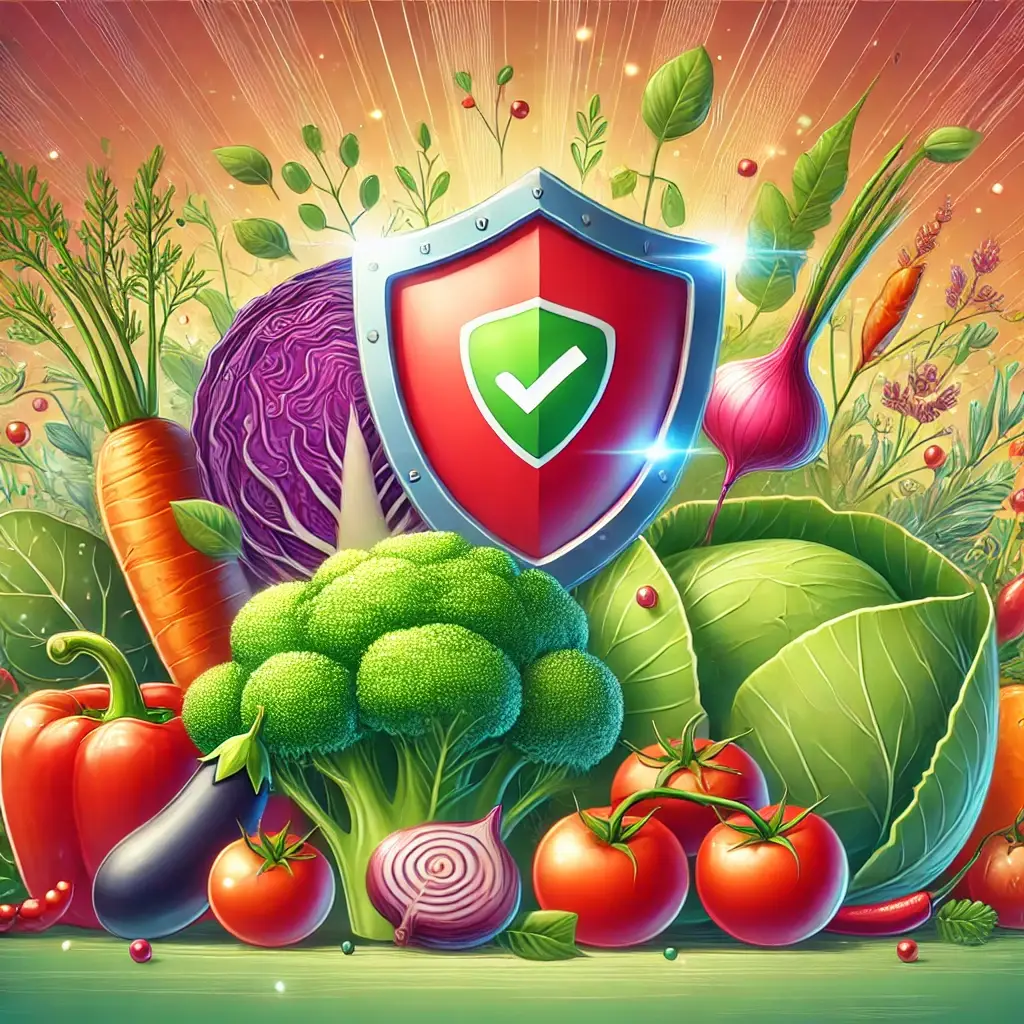
Eating lots of plants can help protect you from cancer. Fiber, which is found in fruits, veggies, and whole grains, helps keep your digestion healthy and protects against cancer, especially in the colon. Antioxidants in plants also protect your cells from damage that can lead to cancer.
The World Health Organization says that processed meats can cause cancer. By not eating meat and choosing healthy plant foods instead, you lower your exposure to cancer-causing substances and boost your overall health. Have you ever thought about how many colorful fruits and vegetables there are? Each color represents different antioxidants, like vitamin C in oranges or lycopene in tomatoes, which all work to protect your cells from damage.
Cruciferous vegetables like broccoli, cabbage, and Brussels sprouts are especially powerful in fighting cancer. These veggies have special compounds called glycosylates, which help your body get rid of harmful substances. So, eating a variety of plant-based foods not only gives you more nutrients but also helps your body stay strong against diseases.
4. Vegan Nutrition for Better Digestion 💨
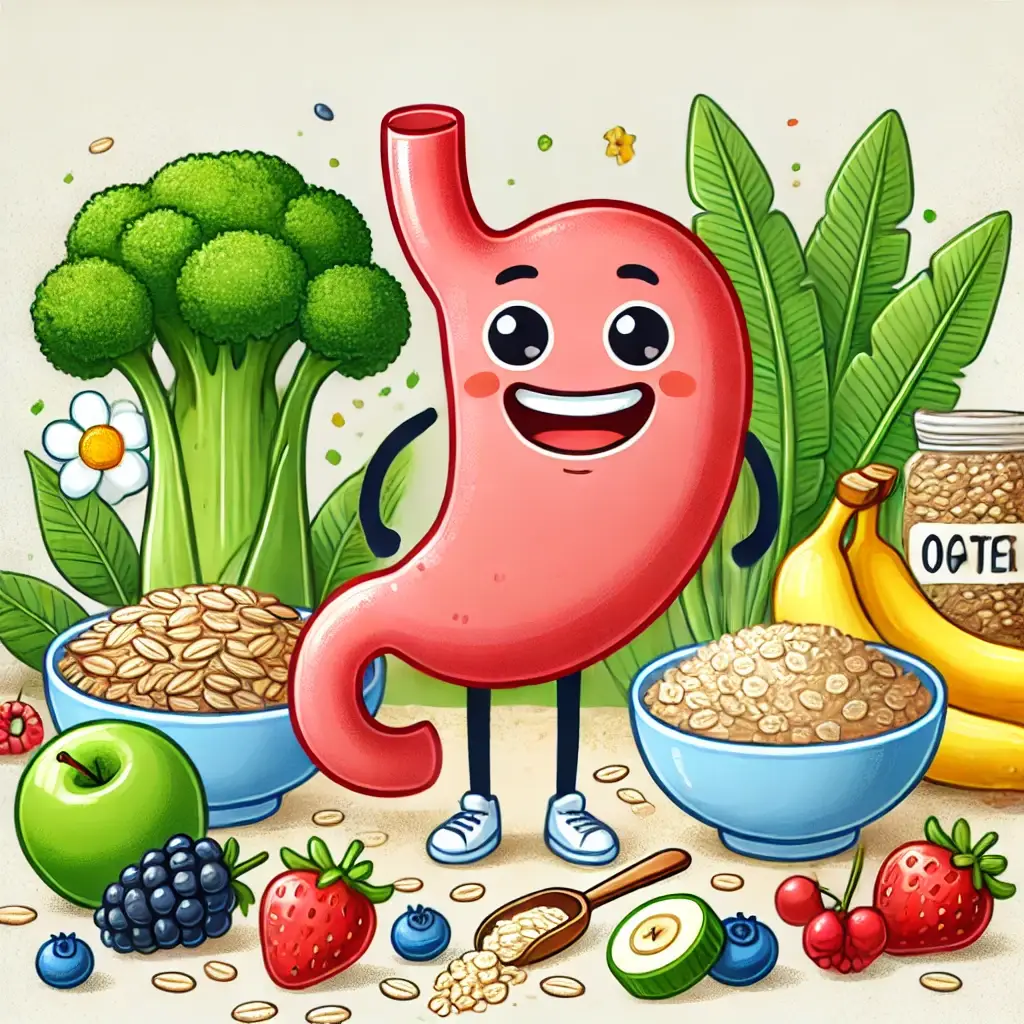
Are you tired of stomach issues? A vegan nutrition diet can help keep your gut healthy. The fiber in plant-based foods helps feed good bacteria in your gut, which reduces inflammation and helps your body absorb nutrients better. Foods like onions, garlic, and bananas are full of prebiotics, which help grow those good bacteria.
Vegans often have fewer issues like constipation or irritable bowel syndrome (IBS) because they eat a lot of fiber. Eating fiber-rich foods regularly means healthier digestion and more regular trips to the bathroom. Have you ever felt bloated or sluggish after eating a heavy meal? Switching to a high-fiber, plant-based meal can help you feel lighter and more comfortable.
Fiber not only helps with regular bowel movements but also helps detoxify your body by pushing out waste more efficiently. Plus, a healthy gut is linked to a healthy immune system, so taking care of your digestion means you’re also supporting your overall health. Adding foods like chia seeds, oats, and berries to your meals can help keep your digestive system on track.
5. Lowers Risk of Type 2 Diabetes 🩸
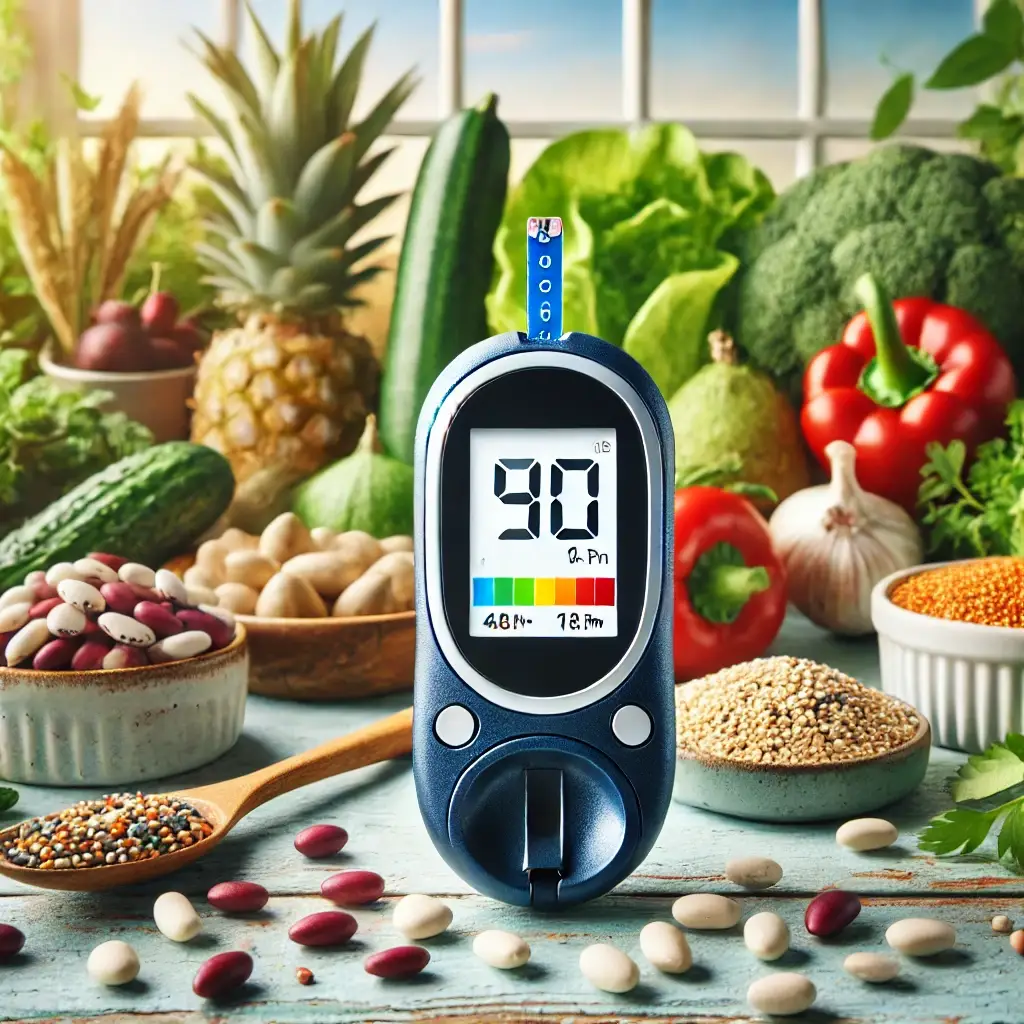
Want to lower your risk of diabetes? A vegan nutrition diet might be the answer. Eating plant-based foods can help keep your blood sugar stable and improve how your body uses insulin. Studies show that people on a vegan diet are 78% less likely to develop type 2 diabetes compared to those who eat meat.
Foods like beans, whole grains, and veggies release energy slowly, which keeps your blood sugar steady and helps manage diabetes symptoms if you already have them. Have you ever felt a sugar crash after eating something sweet? A plant-based diet helps prevent those highs and lows by giving you steady energy throughout the day.
Eating more fiber also helps your body process sugars better. Whole grains like quinoa, brown rice, and oats are great choices for keeping your blood sugar in check. Plus, leafy greens like spinach and kale are low in calories but full of nutrients, making them a perfect addition to a diabetes-friendly diet. Adding some cinnamon to your meals can also help regulate blood sugar—it’s a tasty and natural way to stay healthy.
6. Improves Kidney Health 💧
Your kidneys work hard every day, and eating a vegan nutrition diet can make their job easier. Animal proteins can be tough on the kidneys, increasing the risk of kidney stones and other issues. Plant-based proteins, like those found in beans, tofu, and nuts, are easier on the kidneys and less likely to cause problems.
Switching from animal proteins to plant proteins can help your kidneys stay healthy and even slow down kidney disease if you already have it. Have you ever thought about how much your kidneys do for you? They filter out waste and keep your body balanced, so taking care of them is super important.
Drinking plenty of water and eating water-rich foods like cucumbers, watermelon, and celery can also support kidney health. By eating more plants, you reduce the amount of acid your body needs to process, which puts less strain on your kidneys. This means better long-term health and fewer complications down the road.
7. Boosts Energy and Helps You Live Longer 🌟
Want more energy and a longer life? A vegan nutrition diet can help! Plants are full of antioxidants, which reduce inflammation and lower the risk of diseases like Alzheimer’s and arthritis. Eating plants also gives you more vitamins and minerals, which means more energy and less tiredness.
Antioxidants protect your cells from damage, which can help you stay young longer. This means better skin, more energy, and an overall happier, healthier you. Have you ever noticed how eating fresh fruits and veggies makes you feel more awake and energized? That’s because they give your body the nutrients it needs to work its best.
A vegan diet also helps reduce inflammation in the body. Inflammation can lead to many health problems, from joint pain to heart disease. By eating more anti-inflammatory foods like berries, leafy greens, and turmeric, you can reduce inflammation and feel better overall. Plus, plant-based diets are often linked to longer lifespans, so if you want to enjoy a long, healthy life, adding more plants to your meals is a great way to start.
Important Nutrients for Vegans 🥦
While eating vegan nutrition diet has lots of benefits, you need to make sure you’re getting enough of certain nutrients. Here are some important ones to focus on:
- Vitamin B12: This vitamin is mostly found in animal products, so vegans should eat foods with B12 added or take a supplement. You can find B12 in fortified cereals, plant-based milks, and nutritional yeast—it tastes a bit like cheese and is great on popcorn!
- Iron: Plants like spinach and lentils have iron, but it’s best to eat them with foods high in vitamin C to help absorb it better. Try adding some lemon juice to your spinach salad or eating strawberries with your breakfast oats.
- Calcium: To keep your bones strong, eat foods like fortified plant milk, tofu, and leafy greens. Almond milk, soy milk, and orange juice with added calcium are easy ways to make sure you’re getting enough.
- Omega-3 Fatty Acids: Flaxseeds, chia seeds, and walnuts have these healthy fats, which are great for your heart and brain. You can sprinkle chia seeds on your smoothie or add walnuts to your salad for an easy boost.
A vegan diet has many health benefits. It can help your heart, improve digestion, and lower the risk of serious health problems like diabetes and cancer. If you want to lose weight, have more energy, or live a longer life, going plant-based could be the answer. Why not give it a try and see how you feel? 😊
Remember, it’s all about making small changes that work for you. Start by adding more fruits and veggies to your meals, and see how your body responds. You might be surprised at how much better you feel with just a few simple swaps. So, are you ready to give a vegan diet a try? 🌿
Health Benefits of Common Vegan Foods 🥗
Here’s a quick look at the health benefits of some common vegan foods:
| Food | Health Benefits |
|---|---|
| Spinach | High in iron and antioxidants, supports bone health |
| Chia Seeds | Rich in omega-3s, helps reduce inflammation |
| Almond Milk | Fortified with calcium, supports strong bones |
| Quinoa | Complete protein, aids in muscle repair |
| Berries | High in antioxidants, reduces inflammation |
| Tofu | Good source of protein, supports heart health |
| Broccoli | High in fiber, helps with digestion |
| Walnuts | Rich in omega-3s, supports brain function |
A vegan diet has many health benefits. It can help your heart, improve digestion, and lower the risk of serious health problems like diabetes and cancer. If you want to lose weight, have more energy, or live a longer life, going plant-based could be the answer. Why not give it a try and see how you feel? 😊
Remember, it’s all about making small changes that work for you. Start by adding more fruits and veggies to your meals, and see how your body responds. You might be surprised at how much better you feel with just a few simple swaps. So, are you ready to give a vegan diet a try? 🌿
Vegan Diet by the Numbers 📊
A vegan diet can make a huge difference in your health, and the numbers prove it. Below are some interesting facts and figures about the benefits of going plant-based.
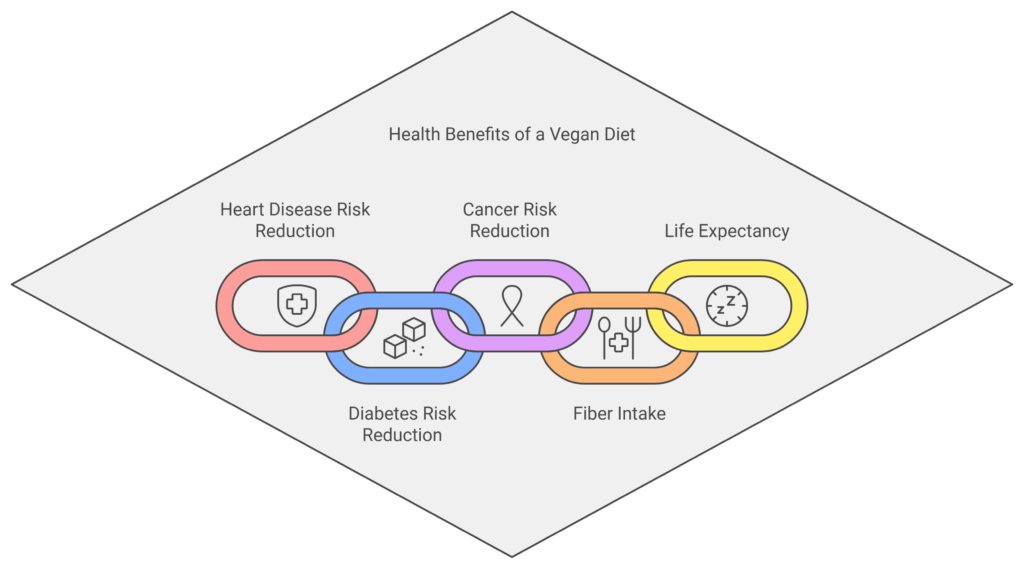
- 32% Lower Risk of Heart Disease: Studies have shown that people who follow a vegan diet are 32% less likely to develop heart disease compared to meat-eaters.
- 78% Lower Risk of Type 2 Diabetes: Research has found that adopting a vegan diet can reduce your risk of developing type 2 diabetes by 78%.
- 15% Lower Risk of Cancer: A well-balanced vegan diet can lower the risk of certain cancers by 15%, especially those linked to processed meats.
- 3x More Fiber: A vegan diet typically contains three times more fiber than a standard diet, helping to promote better digestion and overall gut health.
- 50% Lower Risk of High Blood Pressure: Vegans are 50% less likely to develop high blood pressure, as plant-based foods naturally help regulate blood pressure.
- 20% Longer Life Expectancy: People on plant-based diets are likely to live up to 20% longer, thanks to reduced risks of chronic diseases.
Consider using Napkin.ai to create an engaging infographic that illustrates these facts. Visual aids can make the benefits of vegan nutrition more relatable and easier to understand.
A vegan diet has many health benefits. It can help your heart, improve digestion, and lower the risk of serious health problems like diabetes and cancer. If you want to lose weight, have more energy, or live a longer life, going plant-based could be the answer. Why not give it a try and see how you feel? 😊
Remember, it’s all about making small changes that work for you. Start by adding more fruits and veggies to your meals, and see how your body responds. You might be surprised at how much better you feel with just a few simple swaps. So, are you ready to give a vegan diet a try? 🌿
Frequently Asked Questions (FAQs).
What are the health benefits of a meat-free diet?
A meat-free diet offers many health benefits, including better heart health, lower risk of cancer, improved digestion, lower risk of type 2 diabetes, and increased energy levels.
What are 3 benefits of a vegan diet?
Three benefits of a vegan diet include improved heart health, effective weight management, and a reduced risk of certain types of cancer.
Can vegans survive without meat?
Absolutely! Vegans can thrive without meat by eating a balanced diet full of fruits, vegetables, whole grains, legumes, nuts, and seeds. These foods provide all the nutrients the body needs.
Are vegan diets a better alternative to meat eating?
For many people, a vegan diet is a healthier alternative to meat eating. It reduces the risk of chronic diseases, improves digestion, and can help with weight management.
What is in a vegan diet?
A vegan diet includes fruits, vegetables, whole grains, legumes, nuts, seeds, and plant-based alternatives to dairy and meat. It excludes all animal products, including meat, dairy, and eggs.
What happens if humans stop eating meat?
If humans stop eating meat, they may experience health benefits like improved heart health, lower cholesterol, and reduced risk of chronic diseases. However, it’s important to replace meat with nutritious plant-based foods to ensure balanced nutrition.
What are the benefits of not eating meat?
Not eating meat can lead to benefits such as lower risk of heart disease, reduced cancer risk, improved digestion, better weight management, and lower risk of type 2 diabetes.
What is the meaning of a meat-free diet?
A meat-free diet is one that does not include any meat or meat products. It focuses on plant-based foods like fruits, vegetables, grains, legumes, nuts, and seeds.
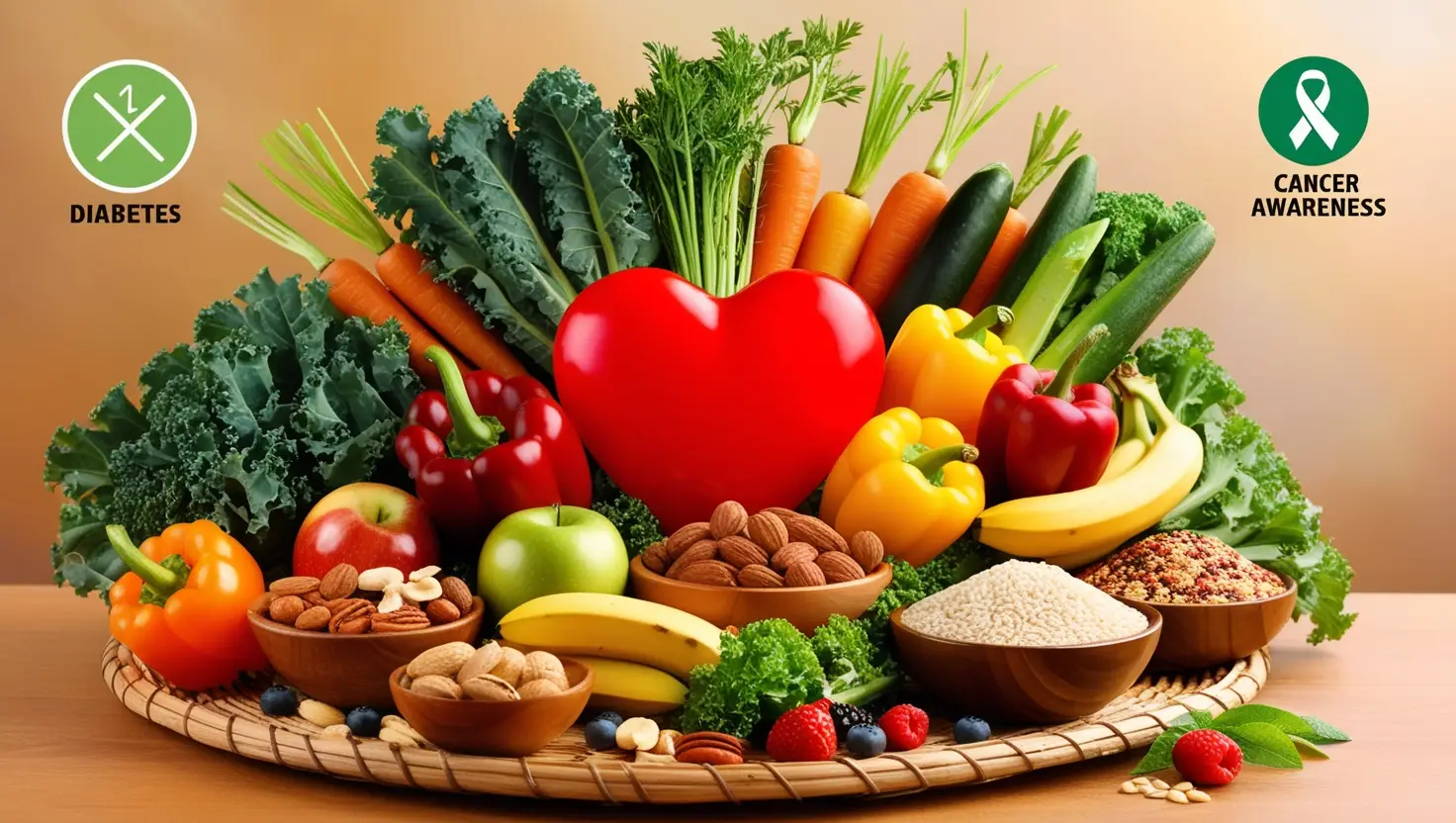

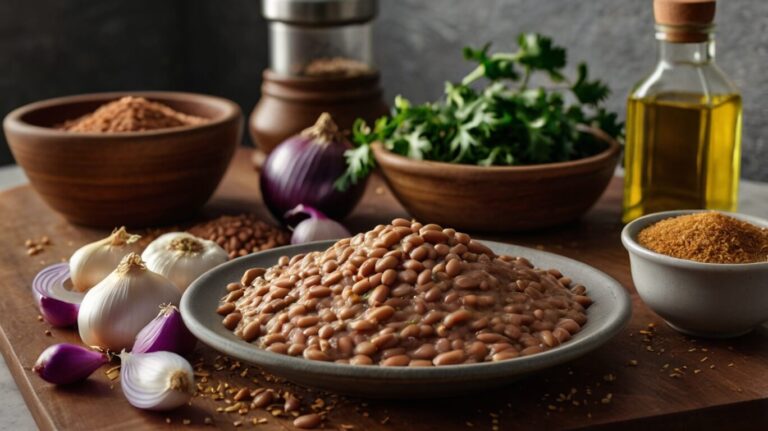
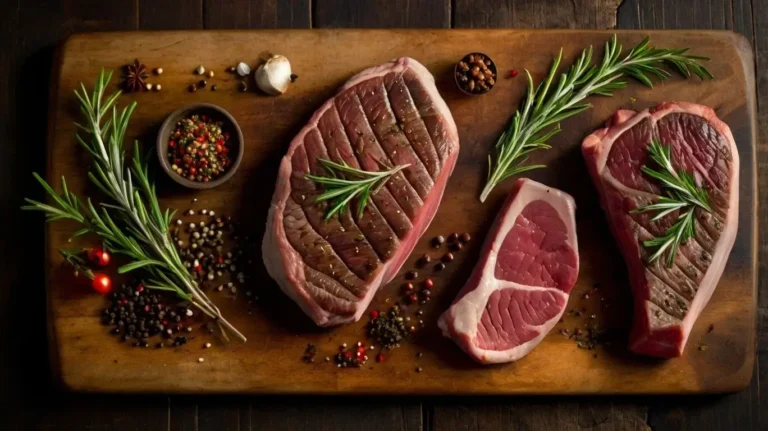
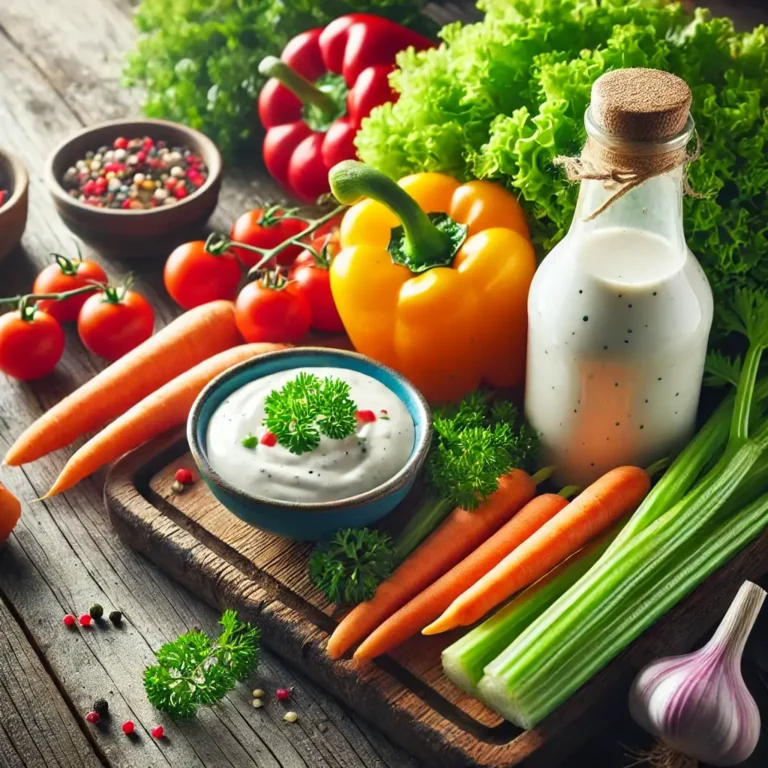


2 Comments